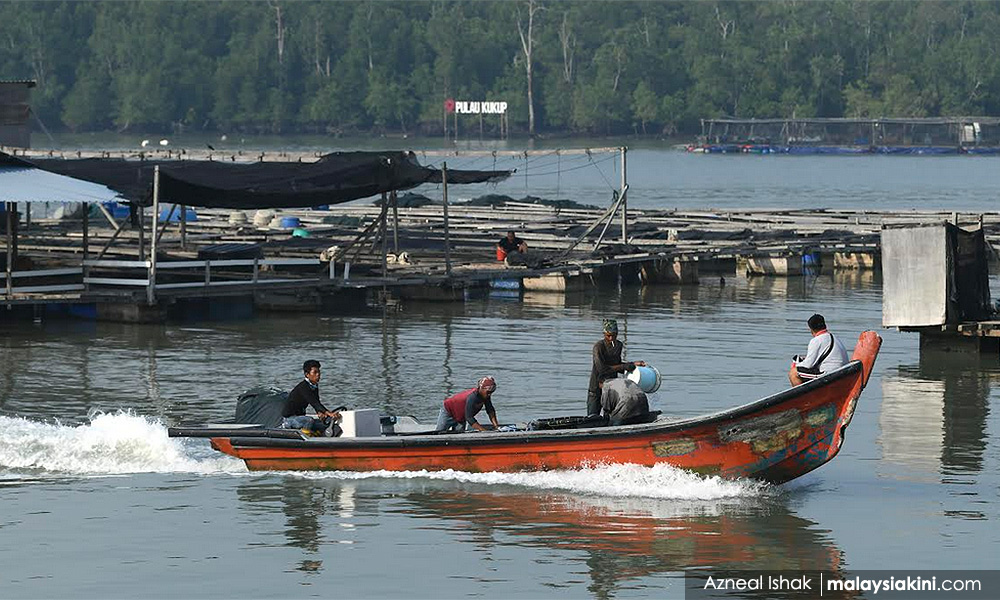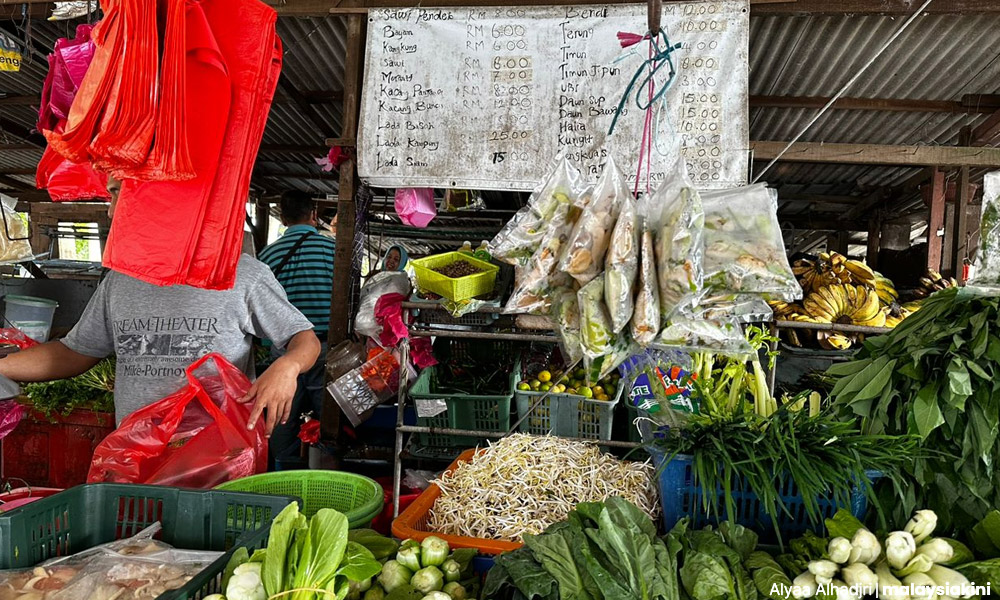The government should wield the big stick on those who exploit the diesel subsidy rationalisation to raise prices indiscriminately given that all those affected have or will have some form of subsidy post the diesel price increase Monday.
Despite the more than 50 percent increase in diesel prices at the pump to RM3.35 per litre from RM2.15 per litre, the fact is that most diesel users (barring those for some personal use and some limited commercial purposes) already get subsidies and will continue to be subsidised post the implementation of the new pump prices.
Exceptions are for a small group of personal vehicle users who earn more than RM100,000 a year. The others will receive a subsidy of RM200 per month which will be more than enough for most people to offset price increases.
That means that the entire system in the supply chain of goods and services where diesel is a cost element will be virtually unaffected by the change in pump prices because the existing subsidised prices for the others will continue to be maintained.
What that means is that there is no justification whatsoever for any prices to increase after the jump in pump prices. So what then is the purpose of the rationalisation exercise?
Stopping smugglers
The immediate increase in pump prices will make it less lucrative to channel diesel for higher prices to overseas markets, through smuggling and transfers on the high seas for instance and make a lot of money on the difference.
That this practice was prevalent extensively was shown in the figures given by Finance Minister II Amir Hamzah Azizan who said that the amount spent on diesel subsidies rose to RM14 billion last year, 10 times the figure of RM1.4 billion in 2019.

The increase in pump prices will help eliminate that but there are other potential leakage sources.
For fisherfolk, the price of diesel is RM1.65; RM1.88 for land public transport; RM2.15 for some commercial sectors; and the unsubsidised market price of RM3.35 per litre for some private and commercial sectors.
Thus those who obtain diesel at lower prices can potentially sell these to other users, locally and overseas for a profit. The government should take firm measures to control these.
Trading in the high seas
In the past, there have been reports that diesel used by fisherfolk increased way beyond reported fish catches, leading to speculation that much diesel was transferred on the high seas. Many fisherfolk were engaged in selling diesel, not catching fish.

The anecdotal evidence strongly suggests these practices prevail. If we assume that the RM1.4 billion in subsidies in 2019 increased to say even RM4 billion in 2023, then the potential leakages will be RM14 billion less the RM4 billion, or RM10 billion.
The government, however, projects a revenue gain of only RM4 billion which implies that leakages may still be large at around RM6 billion.
It is incumbent upon the government to take action through a new mechanism to stop these leakages as well. One way would be unannounced inspections of diesel storage on boats and heavy penalties.
Setting the price
It is important that the government deals with this issue of price hikes firmly over the false claim that the pump price increases will raise the prices of products where diesel is an input.
Malaysia has traditionally had a strong system of controls over price fixing, especially when it comes to the prices of essential goods.
However, following the politicking that took place when the Pakatan Harapan government was overthrown and we were ruled by successive backdoor governments, the emphasis on price controls simply evaporated.
Instead, the governments allowed price increases even for essential items like chicken, where they could move within a range. More often than not this meant they remained at the top of the range.
The decline of the ringgit versus the US dollar was used as an excuse to raise the price of imported goods. However, too often the price increases were way above the decline in our currency rates. The governments simply stood by and did nothing over these price hikes.
It is now high time that the government examined price increases much more carefully and put controls to check excesses for essential goods such as rice, flour, meat, chicken, fish and vegetables to stop the unscrupulous from price gouging.

How many of us know, for instance, that there is a National Cost of Living Action Council (Naccol) which was reactivated on Aug 17, 2018 - three months after Harapan came to power. The first meeting of the Naccol supreme council took place on Sept 27, 2018, but we have not heard much from it until recently.
In April, it said that it was asking Bernas to announce the ceiling price for imported white rice, a move given its tone, and that it had to “ask”, indicates it has very little teeth. If we want more, we need to quickly revamp the council.
It’s not all about controlling prices though. Suppliers must be allowed to import from countries across the world without any restrictions (no approved permits) and with minimal import duties.
If control of prices is accompanied by liberalisation of supplies and duties, we can restrain and reduce prices, limiting profiteering in the process. - Mkini
P GUNASEGARAM agrees there is no such thing as a free lunch, but then there is no such thing as a free market too, which is why regulation is necessary.
The views expressed here are those of the author/contributor and do not necessarily represent the views of MMKtT.




No comments:
Post a Comment
Note: Only a member of this blog may post a comment.